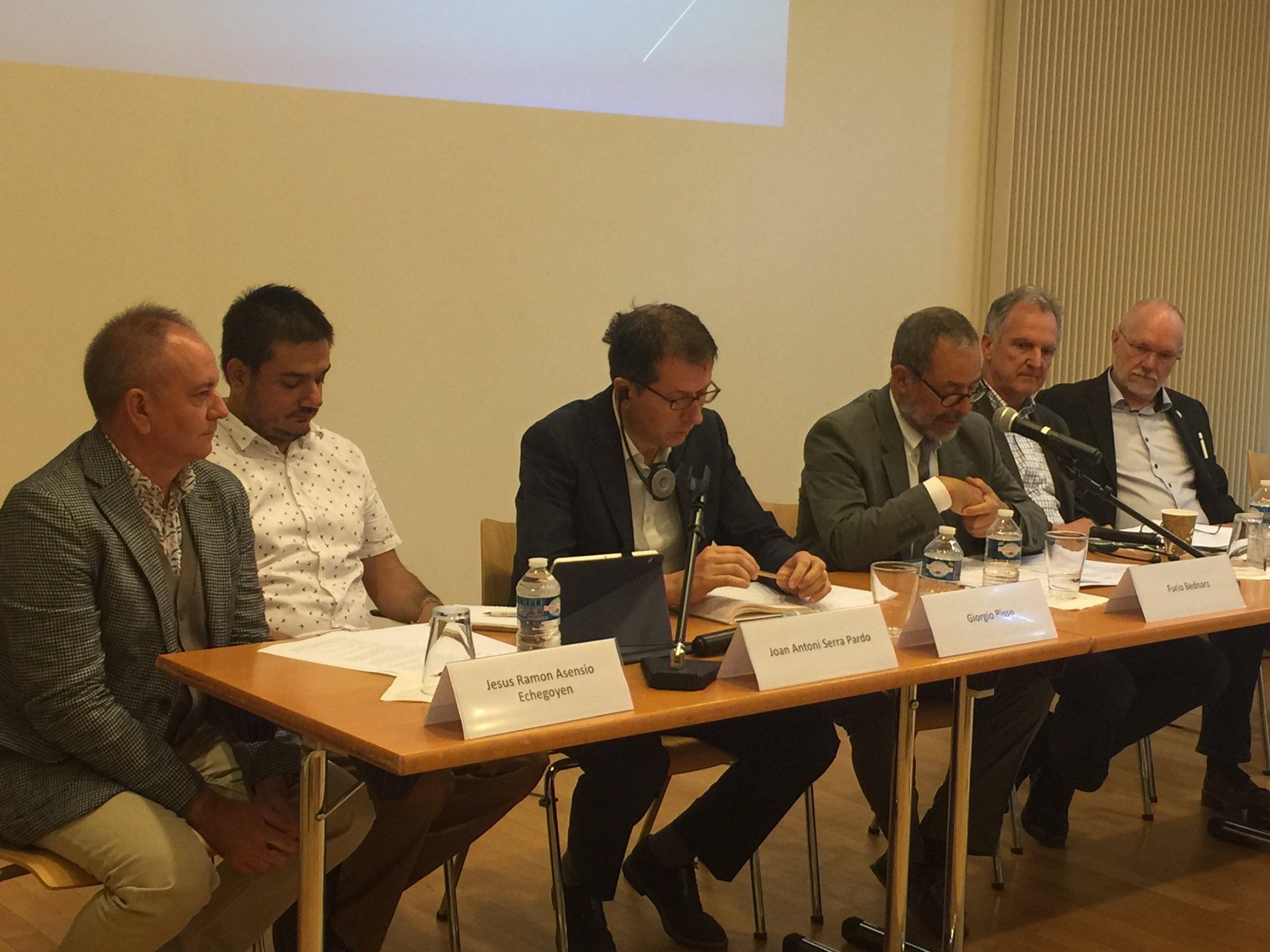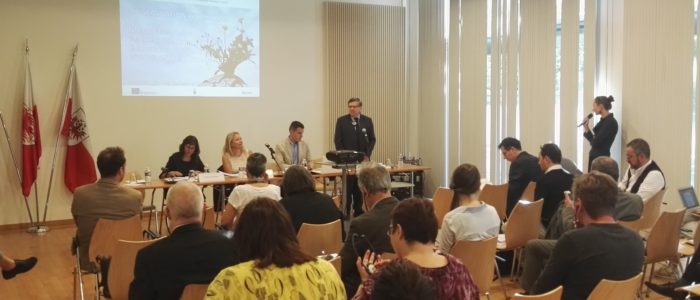The NO NEETS project finished in Brussels
The Dissemination Workshop of the NO NEETS project was held in Brussels on September 19th, being projects’ last activity. NO NEET is an ERASMUS+ KA2 project for the exchange of good practices in which notus has taken part as a partner. The purpose of the project is to identify and share strategies and instruments to reactivate and prepare the “NEETs” to regain access to the training system by reinforcing their professional skills while promoting their participation in civil life. To this end, the project focuses on comparative analysis of instruments of reactivation, motivation, coaching and training aimed at vulnerable young people through visits to different good practices organised by each partner.
During the Workshop, a general assessment of the project and the final report were presented. Ms. Simona Giarratano, Desk officer ESF/FEAD – European Commission -Directorate General for Employment, Social affairs and Inclusion, and Ms. Monica Menapace, European Commission – Directorate – Education, Youth, Sport and Culture – EAC, also participated in the workshop. Ms. Simona Giarratano highlighted how Italy had to extend the intervention of social programmes to 35 years old due to the challenge posed by their high unemployment rate, as other of the challenges of Italy is to improve access to tertiary education, especially university education, and need to be able to measure the long-term impacts of social programmes. Monica Menapace explained how, regarding education, once again the European Commission focuses on the issue of early school leaving in order to lower the rate and thus meet the 2020 objectives.
 Round table “Key-words to efficient strategies” Coordinator of the discussion: Furio Bednarz – Dipartimento della Formazione Professionale e Continua del Canton Ticino – Switzerland. Speeches by: – Kristian Madsen – VUC STORSTRØM – Denmark; – Theo Van de Veerdonk – TIRANTES – Netherlands; – Joachim Borchert – ABU Akademie für Berufsförderung und Umschulung gGmbH Germany; – Claudio Spadon – Agenzia Piemonte Lavoro – Regione Piemonte – Italy; – Joan Antoni Serra Pardo – NOTUS – Catalunya; – Jesus Ramon Asensio Echegoyen – Consejeria de Empleo y Relaciones Laborales de Castilla La Mancha – Spain
Round table “Key-words to efficient strategies” Coordinator of the discussion: Furio Bednarz – Dipartimento della Formazione Professionale e Continua del Canton Ticino – Switzerland. Speeches by: – Kristian Madsen – VUC STORSTRØM – Denmark; – Theo Van de Veerdonk – TIRANTES – Netherlands; – Joachim Borchert – ABU Akademie für Berufsförderung und Umschulung gGmbH Germany; – Claudio Spadon – Agenzia Piemonte Lavoro – Regione Piemonte – Italy; – Joan Antoni Serra Pardo – NOTUS – Catalunya; – Jesus Ramon Asensio Echegoyen – Consejeria de Empleo y Relaciones Laborales de Castilla La Mancha – Spain
Finally, a round table was held. Here, the different project partners reflected on the key words/concepts on the intervention with NEETs arising from the learning acquired from the different experiences that have been analysed in each country. In this sense, concepts such as the flexibility of the solutions to be given to the different problems presented by NEETs group (policies, programmes, measures), the need for a holistic intervention on young people, the personalised and individualised (tailor-made) attention needed or the challenge of how to take advantage of new technologies were tackled.
Also, special attention was paid to the role of social enterprises as safe spaces in which young people could learn and acquire work experience, socialisation and motivational spaces that many young people need or the role of life coaching that counsellors must carry out to help young people.
Good practices and conclusions
If you wish to know the good practices analysed by the project or the main conclusions and recommendations arising from the analysis of these, you can have a look at the final report of the project (English).
More information about the project:



Comments are closed.